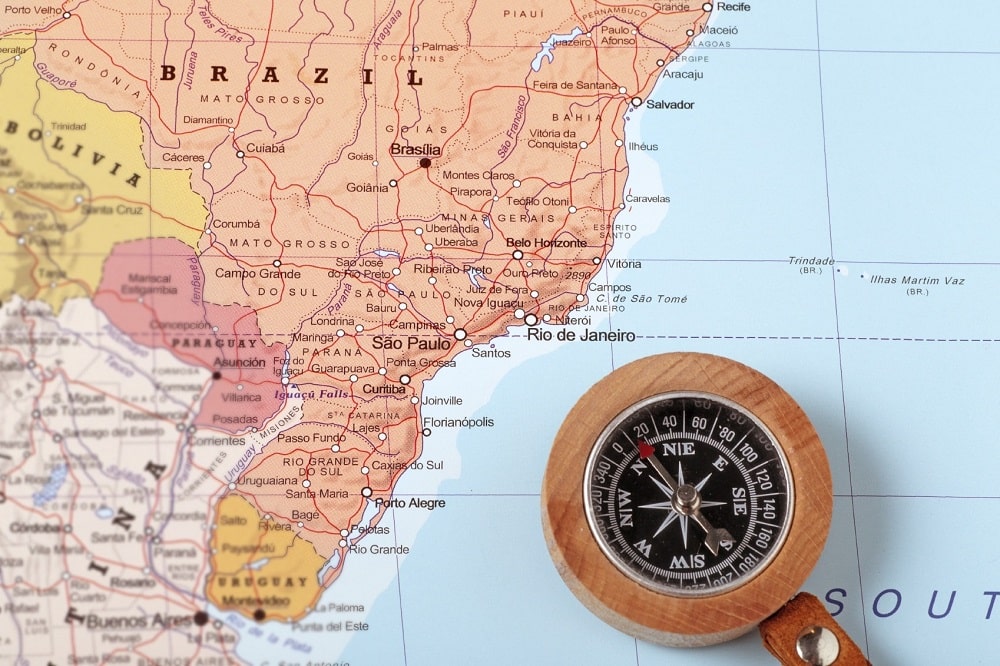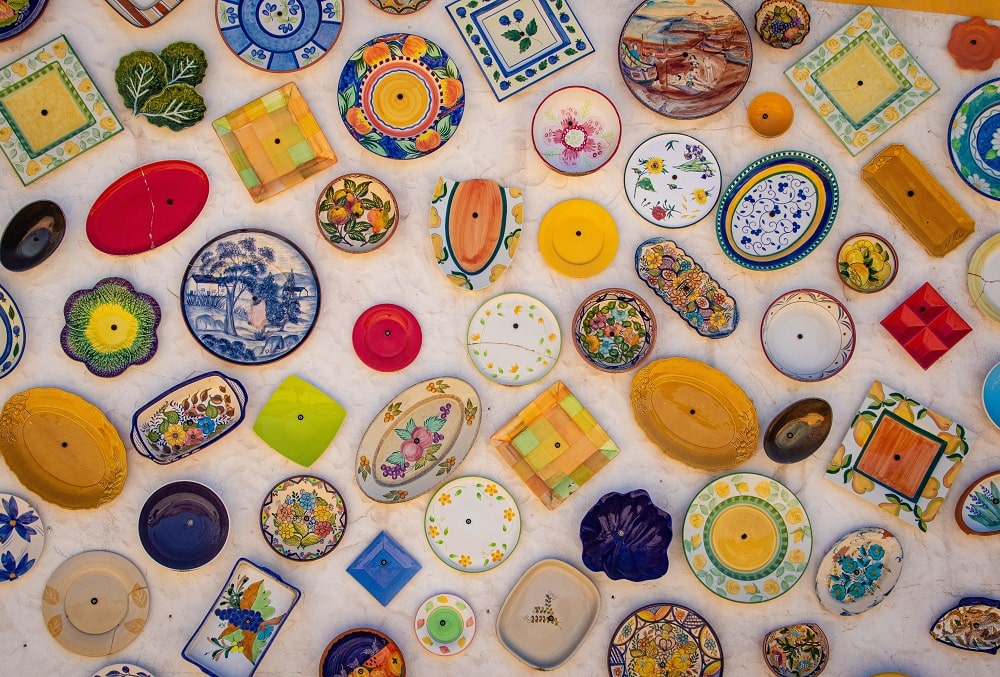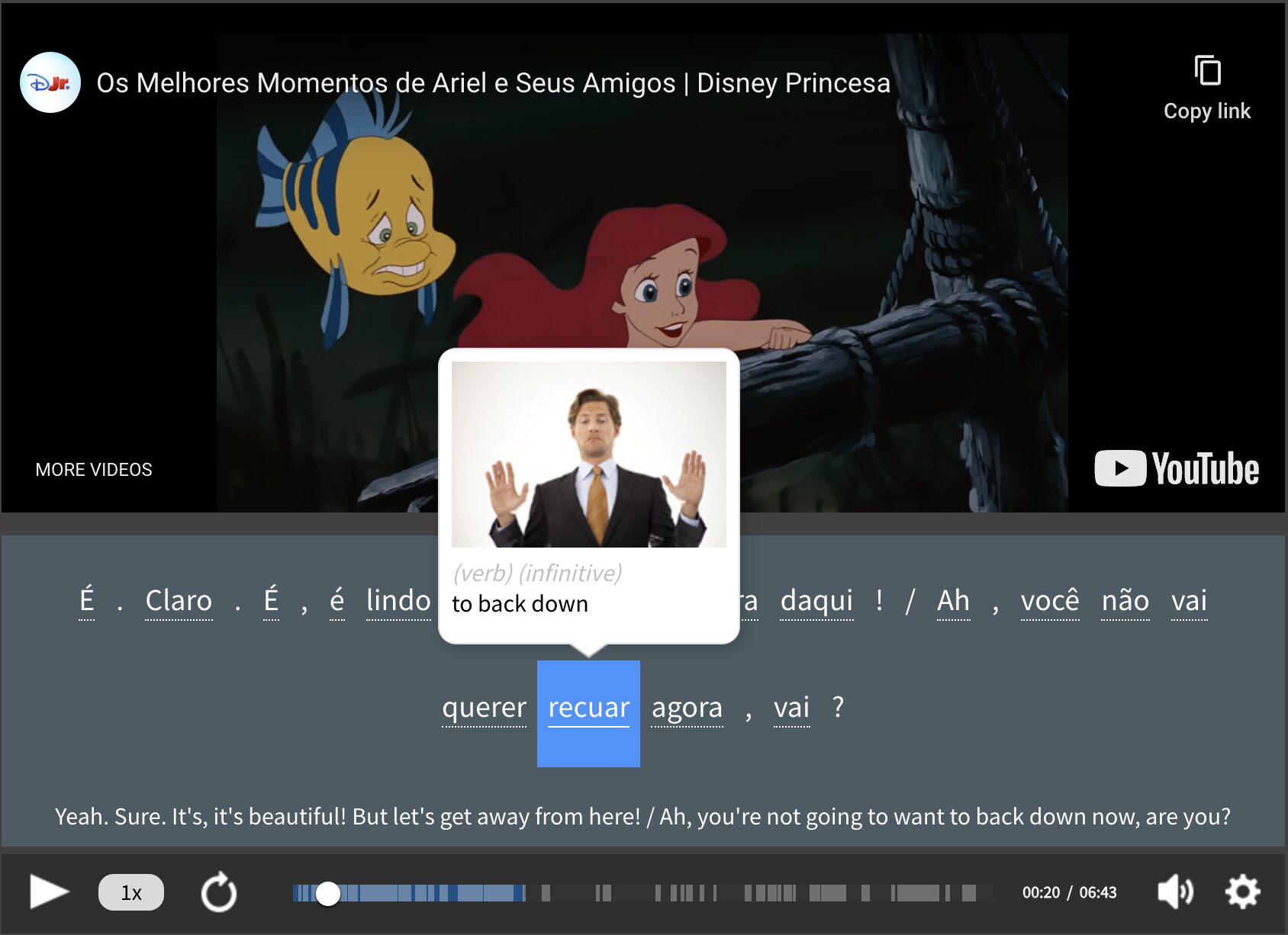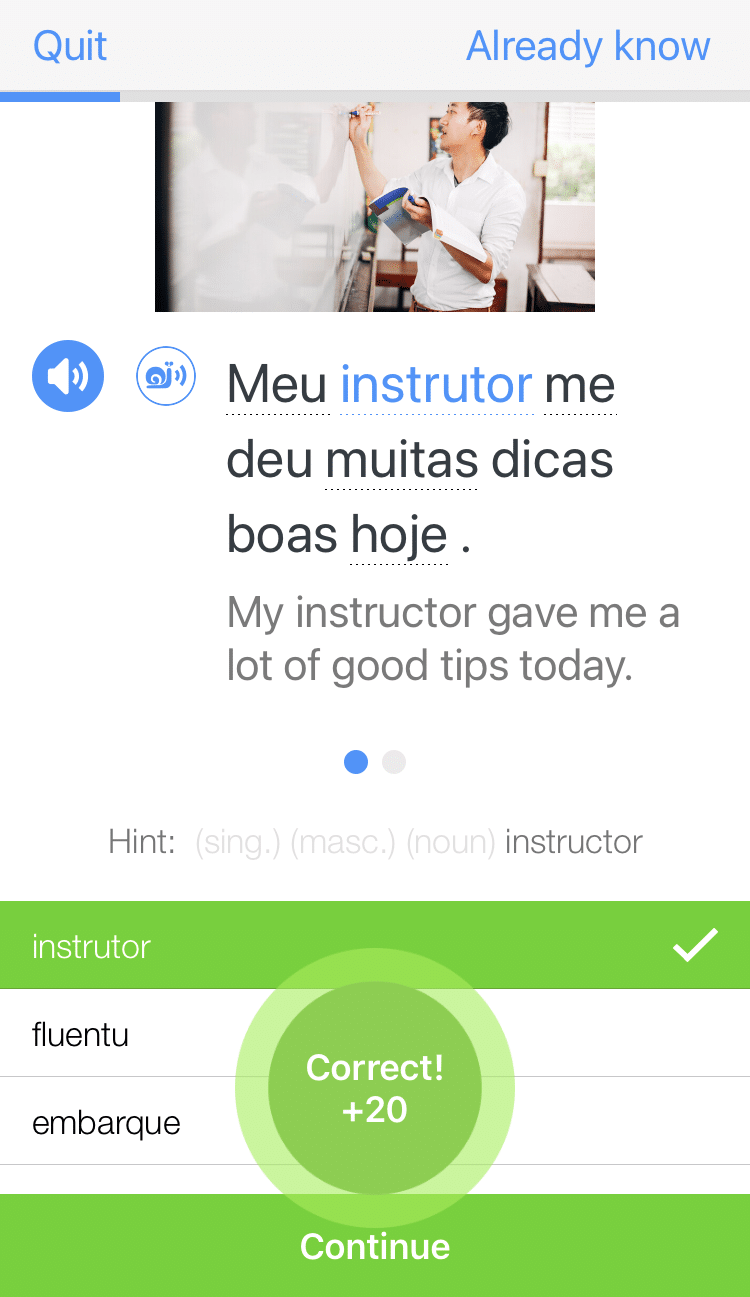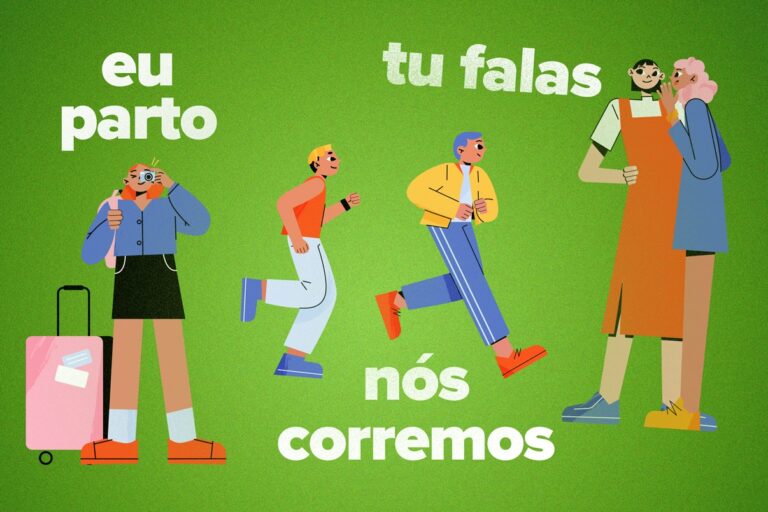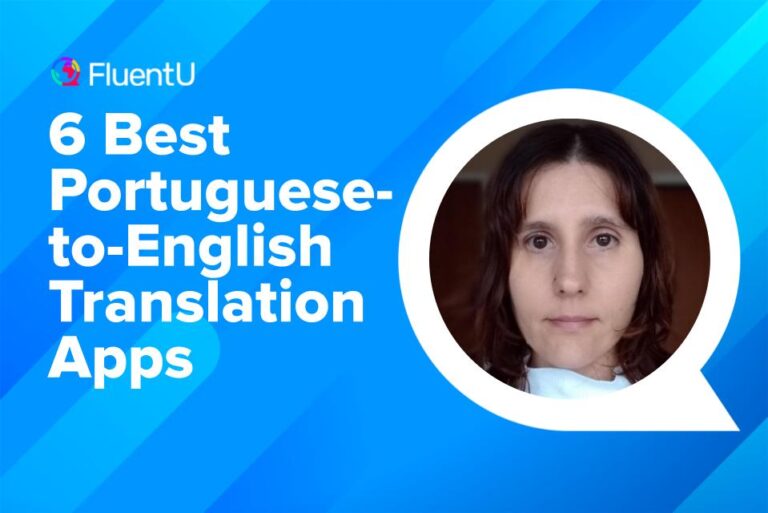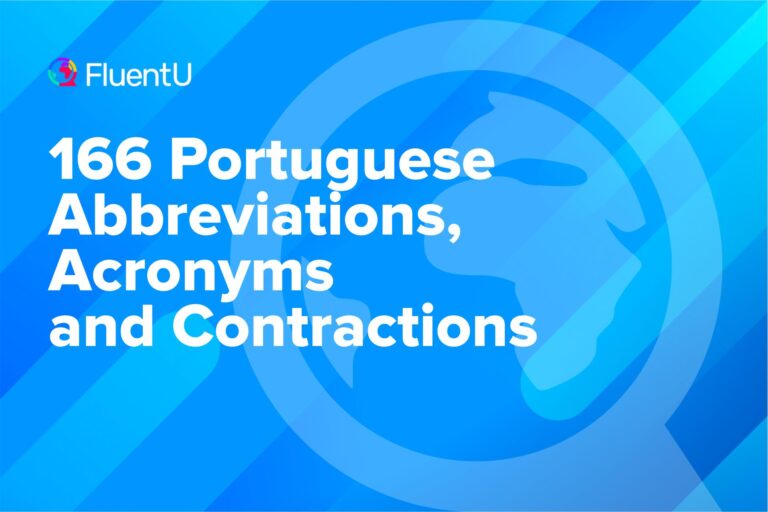128 Portuguese Phrases for Travel and Everyday Life

How would you fare if we transported you to a Portuguese-speaking country right now? Do you have enough phrases under your belt to find your way around?
This post is for all the beginners who want to nail their basic Portuguese phrases. Whether your focus is on European or Brazilian Portuguese, fine-tuning your essentials will make life that much easier.
Download: This blog post is available as a convenient and portable PDF that you can take anywhere. Click here to get a copy. (Download)
Basic Greetings
Greetings are often the first thing you cover when learning a new language—and in Portuguese, it’s no different.
Whether you need a reminder of your basic hellos and goodbyes, or you’re yet to learn them, here are some of the key greetings you need to know:
| Portuguese | English |
|---|---|
| Bom dia | Good morning |
| Boa tarde | Good afternoon |
| Boa noite | Good night |
| Olá | Hello (formal) |
| Oi | Hello/Hi (informal) |
| Alô | Hello (on the phone — Brazilian Portuguese) |
| Está lá | Hello (on the phone — European Portuguese) |
| Adeus | Goodbye (formal) |
| Tchau! | Bye/See you later (informal) |
| Até amanhã | See you tomorrow |
| Tudo bem? | How are you? |
| Como tá? | How are you? (informal) |
| E aí? | How are you? (informal) |
| Como você está? | How are you? (formal) |
| Como está? | How are you? (formal) |
| Eu estou bem, e você/e tú? | I'm good, and you? |
| Bem, e você? | Good, and you? |
| Como vai? | How's it going? |
| Prazer | Nice to meet you |
| Foi um prazer | It was good to meet you |
| O senhor/A senhora | You (formal)/ Sir/Madam |
| Qual é o seu nome? | What is your name? |
| Me chamo... / Meu nome é... | My name is... |
Basic Words and Phrases
Good manners always make a positive impression. If you’re ever traveling to Brazil or Portugal, these terms will help prevent any cultural misunderstandings that might arise from basic etiquette:
| Portuguese | English |
|---|---|
| Sim | Yes |
| Não | No |
| Por favor | Please |
| Com licença | Excuse me |
| Obrigado/Obrigada | Thank you |
| De nada | You're welcome |
| Desculpa/Desculpe | I'm sorry |
| Perdão | Forgive me/Pardon me |
| Por quê? | Why? |
| Estou com saudades | I miss you (Brazilian Portuguese) |
| Tenho saudades | I miss you (European Portuguese) |
| Vamos! | Let's go! |
Essential Questions and Phrases
There’s no shame in asking for help when you need it. In fact, it’s all part of the learning experience.
If you’re talking to a native Portuguese speaker, use these phrases to aid your comprehension:
| Portuguese | English |
|---|---|
| Fala inglês? | Do you speak English? |
| Alguém aqui fala inglês? | Does anyone here speak English? |
| Não compreendo | I don't understand |
| Eu compreendo | I understand |
| Não entendi | I didn't understand |
| Entendi | I understood/I understand |
| Eu não sei | I don't know |
| Como se diz... em português? | How do you say... in Portuguese? |
| Fale mais devagar, por favor | Please speak more slowly |
| Que horas são? | What time is it? |
| Preciso de sua/tua ajuda | I need your help (Use sua in Brazil and tua in Portugal) |
| Eu estou doente | I'm sick |
Essential Portuguese Travel Phrases
Traveling to Brazil or Portugal? Then these questions will definitely help you along the way. This is by no means a comprehensive list, but it’ll help you get started:
| Portuguese | English |
|---|---|
| Preciso trocar dinheiro | I need to exchange money. |
| Como chego ao (à)... ? * | How do I get to...? |
| Como chego à estação de trem? | How do I get to the train station? |
| Como chego ao ponto de ônibus? | How do I get to the bus stop? |
| Para onde vai esse trem/ônibus? | Where does this train/bus go? |
| A que horas chega... ? | What time does the... arrive? |
| Sabe onde fica... ? | Do you know where the... is? |
| Você pode me mostrar no mapa? | Could you show me on the map [where this is]? |
| Onde é o banheiro? | Where is the bathroom? (Brazilian Portuguese) |
| Onde fica a casa de banho? | Where is the bathroom? (European Portuguese) |
| Carro | Car |
| Ônibus | Bus (Brazilian Portuguese) |
| Autocarro | Bus (European Portuguese) |
| Avião | Plane |
| Trem | Train |
| Táxi | Taxi |
| Bicicleta | Bike |
| Parada de ônibus | Bus stop |
*Grammar note: use ao for masculine nouns, à for feminine.
Asking for Directions
In order to get where you want to go, you’re probably going to have to ask for directions. Here are the basics:
| Portuguese | English |
|---|---|
| Pode me dizer como chegar... ? | Could you tell me how to get to... ? |
| Onde está... ? | Where is... ? |
| O hotel | The hotel |
| O quarto | The room |
| O museu | The museum |
| O parque | The park |
| A catedral | The cathedral |
| A cachoeira | The waterfall |
| O aeroporto | The airport |
| Esquerda | Left |
| Direita | Right |
| Reto | Straight ahead |
| Por aí | Around there |
| Em frente | In front of |
| Atrás | Behind |
| Rua | Road |
| Avenida | Avenue |
| Estrada | Highway |
| Faixa | Lane |
| Seguir | To follow |
| Virar | To turn |
| Vira a... | Turn... |
Shopping
If you see something you’d like to bring home, you’ll need to know a thing or two about making purchases.
It might feel unnatural, but haggling is the norm in many countries. Here’s how to let the vendor know you won’t budge from your budget:
| Portuguese | English |
|---|---|
| Quanto custa? | How much does it cost? |
| Quanto custa esta... ? | How much does this... cost? |
| Que horas abre/fecha? | What time does this place open/close? |
| Que horas vocês abrem/fecham? | What time do you open/close? |
| Vou pagar só 5 dólares. Nada mais. | I will only pay five dollars. Nothing more. |
| Você tem... ? | Do you have... ? (Used when asking for things) |
| Camisa | Shirt |
| Saia | Skirt |
| Calças | Pants |
| Vestido | Dress |
| Sapatos | Shoes |
| Souvenir | Souvenir |
| Lembrança | Souvenir |
Words and Phrases for Food
No cultural experience is complete without food. How about trying the famous Brazilian brigadeiro dessert pictured above?
If you’re ever in Brazil you’ll need to know more than the word cachaça (a spirit produced mainly in Brazil).
Here are some essential Portuguese phrases to remember:
| Portuguese | English |
|---|---|
| Eu quero... | I want... |
| Pode dar me..., por favor? | Can you please give me... ? |
| Bebidas | Drinks |
| Água | Water |
| Refrigerante | Soda |
| Suco | Juice |
| Leite | Milk |
| Vinho | Wine |
| Cerveja | Beer |
| Comida | Food |
| Salada | Salad |
| Arroz | Rice |
| Feijão | Beans |
| Carne | Meat |
| Frango | Chicken |
| Sobremesa | Dessert |
| Bolo | Cake |
| Sorvete | Ice cream |
| Maçã | Apple |
| Mamão | Papaya |
| Morango | Strawberry |
| Manga | Mango |
| Maracujá | Passionfruit |
| Goiaba | Guava |
| Açaí | Acai berry |
| Caju | Cashew fruit |
Quick Tips to Make Learning Basic Portuguese a Breeze
Learning a language, as you already know, is a commitment.
It takes time to build up your vocabulary, study the grammar rules and get your pronunciation just right.
But you know what? All that groundwork doesn’t have to be stressful.
As long as you know what you’re trying to achieve and how you’re going to achieve it, the transition between all learning phases—from beginner to advanced—should go quite smoothly.
At this stage, in particular, there are two key points that we recommend you focus on:
Learn in context
Your first mission is to put your learned phrases into context. Memorizing words and sentences isn’t going to do any good if you don’t know how to apply them in your daily life.
With all the resources you can readily access these days, it’s easy and fun to get actively involved in practicing your linguistic skills—no matter how basic—beyond memorization.
For instance, the exercises and native content you’re exposed to through the FluentU program’s authentic videos will help you see how each new phrase and language rule you’re studying fits into natural Portuguese speech.
FluentU takes authentic videos—like music videos, movie trailers, news and inspiring talks—and turns them into personalized language learning lessons.
You can try FluentU for free for 2 weeks. Click here to check out the website or download the iOS app or Android app.
Other great sources like Portuguese short stories, fun local cartoons, engaging Portuguese movies and authentic TV shows can also help you get a feel for the basics.
Learn out loud
The second thing to think about is pronunciation. A language learner’s ultimate goal is to get fluent, after all—so the earlier you start practicing those sounds, the better.
Watching online video lessons can be quite helpful at this stage. Regardless of which dialect you’re learning, finding the right material is as simple as searching for basic phrases, greetings and other key vocabulary terms in your chosen dialect.
Don’t just listen to how words are said, though—actually repeat them out loud. Pause the video after each word or phrase and come back to it a couple of times.
And if you need some extra reassurance on the pronunciation front, try inputting each separate word into your preferred Portuguese dictionary or translator app to hear how it’s spoken. Again, repeating them to yourself out loud is a must.
Now that you have these essential Portuguese phrases, you’re ready to start using this new vocabulary in your own conversations!
Even if you’re not going traveling, try using these phrases in your everyday life. And for more advanced phrases, check out our post on Portuguese sayings and quotes for every occasion.
These phrases will provide you with the necessary building blocks to help you on your Portuguese journey to fluency!
Boa viagem! (Have a good trip!)
Download: This blog post is available as a convenient and portable PDF that you can take anywhere. Click here to get a copy. (Download)
And One More Thing...
If you're like me and enjoy learning Portuguese through movies and other media, you should check out FluentU. With FluentU, you can turn any subtitled content on YouTube or Netflix into an engaging language lesson.
I also love that FluentU has a huge library of videos picked specifically for Portuguese learners. No more searching for good content—it's all in one place!
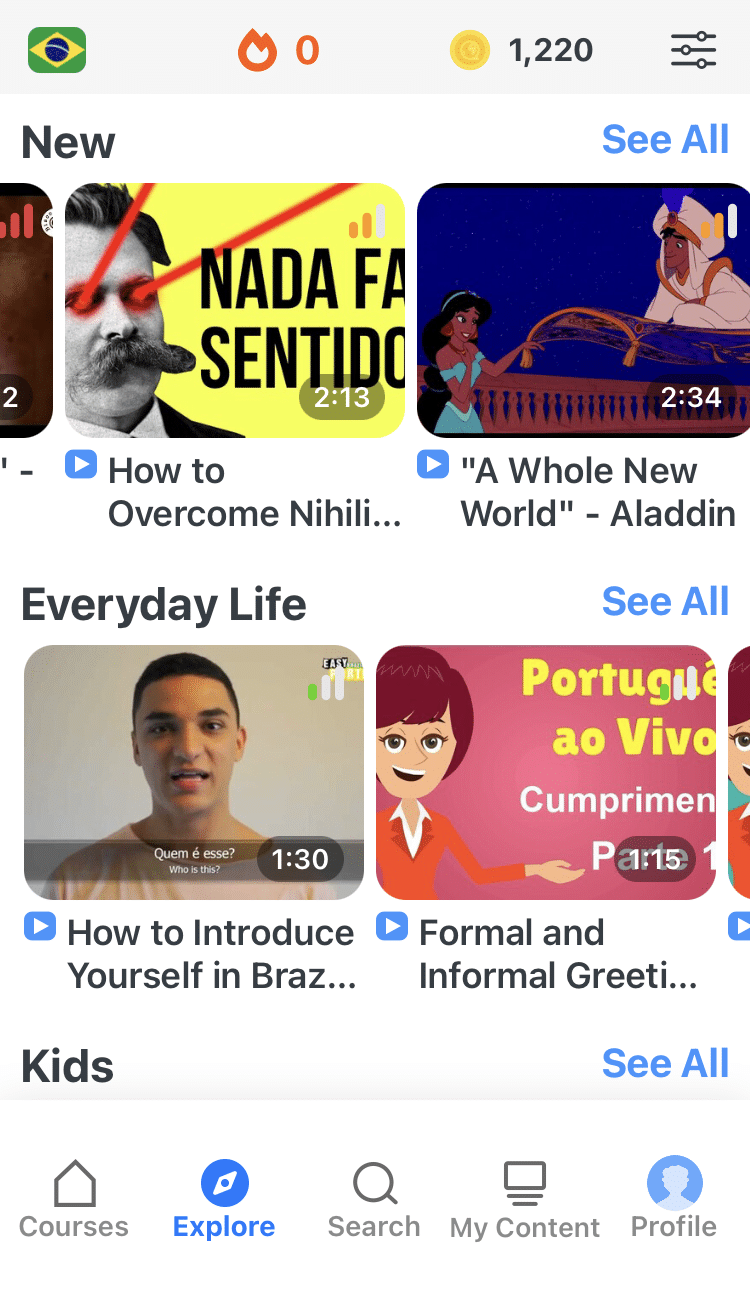
One of my favorite features is the interactive captions. You can tap on any word to see an image, definition, and examples, which makes it so much easier to understand and remember.
And if you're worried about forgetting new words, FluentU has you covered. You'll complete fun exercises to reinforce vocabulary and be reminded when it’s time to review, so you actually retain what you’ve learned.
You can use FluentU on your computer or tablet, or download the app from the App Store or Google Play. Click here to take advantage of our current sale! (Expires at the end of this month.)




